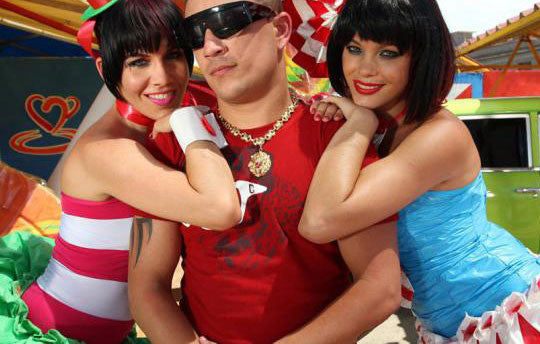Your Cart is Empty

The Cuban government has outlawed Reggaeton, a form of Latin American pop music which synthesises dancehall with Latin American styles, on the grounds that 'on the one hand there are aggressive, sexually obscene lyrics that deform the innate sensuality of the Cuban woman, projecting them as grotesque sexual objects. And all this is backed by the poorest quality music.'
The sound of Reggaeton finds its roots in Panama's 'Reggae en Español', but found its shape, name and current nature in Puerto Rico. In Cuba the genre is occasionally called Cubatón, which may mean Reggaeton played by Cuban artists, or a unique blend of Reggaeton and Cuban styles such as salsa and timba. The music is characterised by the 'dem bow' rhythm, played on the snare drum, and blends Jamaican dancehall with salsa, bomba and electronic styles.
The genre has become hugely popular in Cuba, but has come under criticism from the Cuban Women's Federation, an organistation with a significant amount of power. This is because Reggaeton music videos characteristically contain explicit references and images to sex - the smash hit song 'Chupi Chupi' by Osmani García contains lyrics which can be roughly translated as 'go on make yourself pretty, and turn out the lights, the orgy has begun' - these being some of the more family-friendly lyrics in the song. Likewise, Los Principales's song 'Kimba Pa Que Suene' translates as 'shake it so it goes off' - the song is an homage to masturbation, yet was heralded as the new hymn of the Cuban youth.
As well as expicit lyrics, the videos are permeated with scantily-clad women filmed with cameras placed carefully at the most revealing angles. The genre is associated with a dance called 'perreo', which loosely translates as 'dogging'.
The government has stated that it is all music with sexually explicit references that may be seen as demeaning to women that will be affected. It seems that reggaeton, however, due to its immense popularity will suffer the most.
The music is criticised not only for its portrayal of women, but also for the quality of the music. The government have said that 'we are in the process of purging music catalogues with the aim of eradicating practices that, in their content, stray from the legitimacy of Cuban pop culture'. There is a big concern on the part of officials that the country's rich history of a wealth of fantastic music-making will be overshadowed by this enornously popular style, which is not seen to be 'Cuban' enough.
Public performances of songs with unsuitable lyrics are to be outlawed: the music will no longer be able to be recorded in state-run recording studios, or played over the radio. Artists will be punished by being struck off official lists, making it impossible to work. Danilo Sirio Lopez, director of the Cuban Institute of Radio and Television says 'we will not play one more base song, one more song with offensive lyrics or videos that attack or denigrate the image of women'. It is not clear yet, however, who the official arbiters of taste will be.
Cuba has a long history of problems of this kind. Even before communism, the genre rumba was banned, a genre which like reggaeton contains explicit dance moves, such as the vacunao,a move performed in the guaguancówhere the male dancer attempts to grab the woman's genitalia, and she has to thwart him by placing her hands between her legs and skillfully stepping out of the way.
Although in its purest form rumba is still sometimes marginalised, it has now attained status as folklore in Cuba, and has a cult following internationally. We must ask the question, is banning the genre going to be successful if the end goal is to put an end to it? Can prohibition work in this case, or will the music become even more popular? As Robert Zurbano of Casa de las Americas, the Cuban cultural institute, has written: 'reggaeton is a music that very much reflects the era, an era of marginalisation'. Could it be that, as with rumba, further marginalising this music will only reinforce its place in history as music of the marginalised?
Listen to Los Principales 'Kimba Pa Que Suene' here: